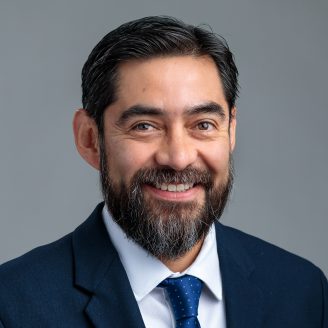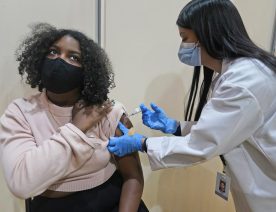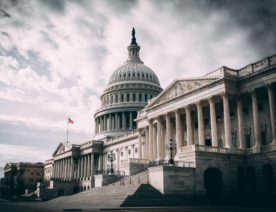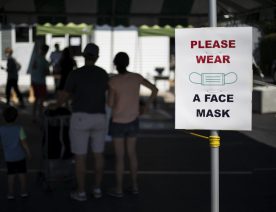
January 26, 2022
Political divisions on confidence in the scientific and medical communities have widened, according to an analysis of the 2021 General Social Survey (GSS) by The Associated Press-NORC Center for Public Affairs Research. The survey, conducted a year into the pandemic, finds confidence in the scientific community has increased among Democrats between 2018 and 2021, but fell among Republicans.
Forty-eight percent of Americans overall have a great deal of confidence in the scientific community. But there is now a 30-point gap in confidence between Democrats and Republicans, up from a 9-point gap in 2018. In 2021, 64% of Democrats have a great deal of confidence in the scientific community, whereas only 34% of Republicans say the same.
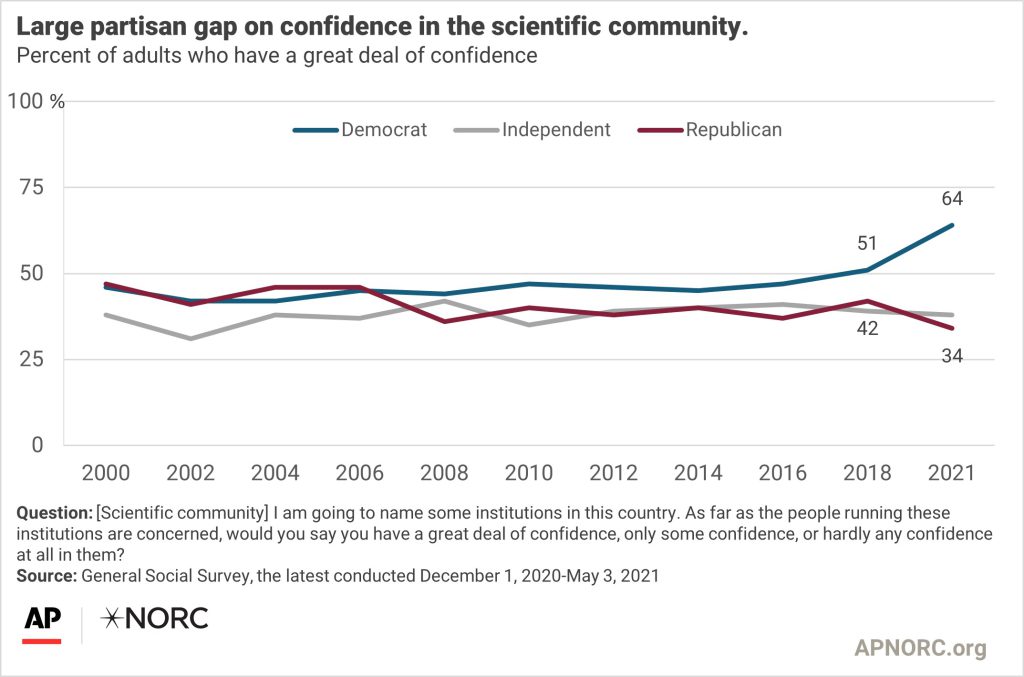
A similar pattern, though less severe, is observed for confidence in medicine. Thirty-eight percent of Americans overall report a great deal of confidence in medicine in 2021, though confidence is higher among Democrats (45%) than Republicans (34%).
While Democrats historically tend to have greater trust in the scientific community and both parties exhibited similar levels of trust in medicine in the last two decades, this political polarization increased between 2018 and 2021 as the COVID-19 pandemic emerged and health and vaccine information became increasingly politicized.
The shifts in confidence in science and medicine also come at a time when public support for the U.S. government covering medical costs is at its highest in the last decade at 37%. Similarly, in 2021, 45% of Americans overall felt federal spending on scientific research was too low.
Confidence dropped in other institutions impacted by the pandemic, such as education. With the pandemic uprooting classroom instruction across the country, overall confidence in education decreased between 2018 (26%) and 2021 (18%) after remaining relatively stable since 2000. Both Democrats and Republicans express lower confidence in education.
Regarding sources of information, confidence in the press remains low. However, confidence among Democrats ticked up in 2018 (19%) and remains steady in 2021 (18%). Democrats are more likely than Republicans to express a great deal of confidence in the press (18% vs. 3%).
There is also a decrease in confidence in organized religion between 2018 (21%) and 2021 (15%). While Republicans’ confidence in organized religion has held steady, both Democrats (17% in 2018 to 12% in 2021) and, particularly, independents (26% in 2018 to 12% in 2021), have seen a dip in those who had a great deal of confidence in the institution.
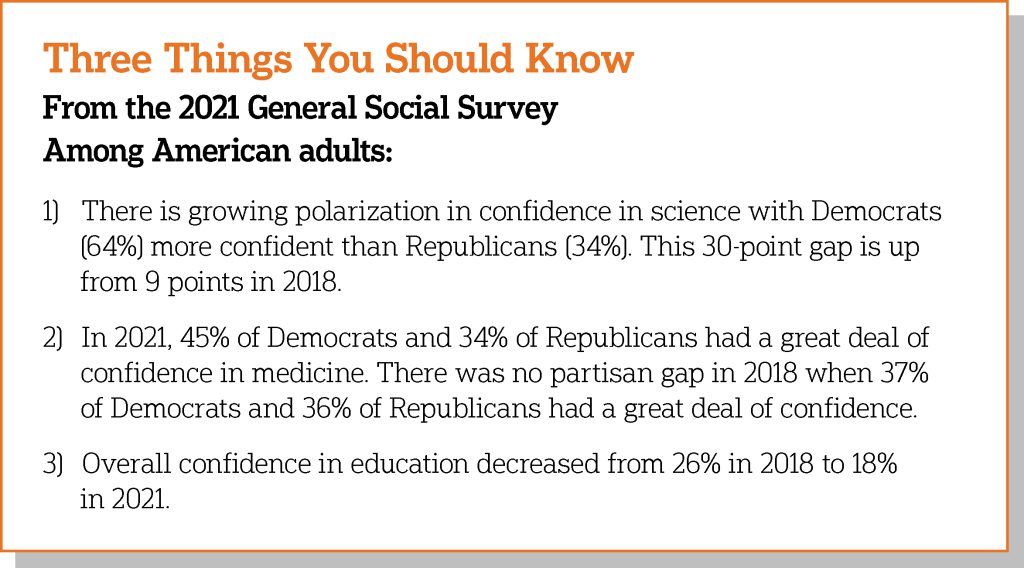
The 2021 GSS was conducted December 1, 2020 through May 3, 2021 and includes interviews from 4,032 American adults. Results for the full sample have a margin of error of plus or minus 2.0 at the 95 percent confidence level. The sampling error may be higher for subgroups and due to other non-sampling errors. Changes in opinions, attitudes, and behaviors observed in 2021 relative to historical trends may be due to actual change in concept over time and/or may have resulted from methodological changes made to the survey methodology during the COVID-19 global pandemic.


